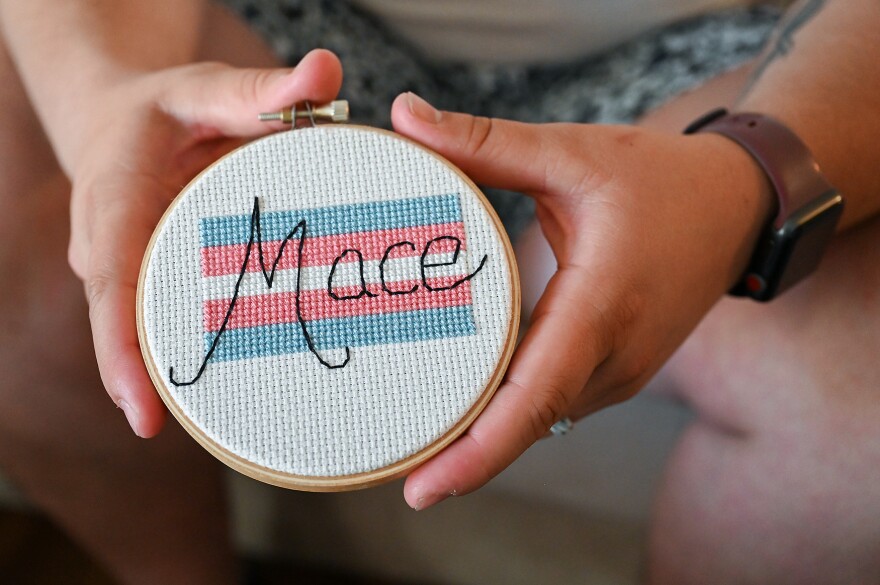Macey Hoover is 25-year-old trans man and a dedicated singer. He spoke about beginning the process of medically transitioning and how he’s adapting to his changing voice.
Alphabet Soup shares LGBTQ+ Missourians’ stories through portraiture and personal narratives.
Macey Hoover: Music has gotten me through every step in this journey since I was a child, like, I think I was, for a lack of better words, singing before I could speak in a lot of ways,
My parents met through music, so music's always been a really big part of who I am and who I was meant to be.
Transitioning and my voice changing – there have been a lot of harder moments, actually, I was worried to start medically transitioning because I didn't want my voice to change.
Once I was in the last few years of my college experience, and last year even – my first year being a teacher – like, I was just, like, extremely happy with where my voice was, and really confident, and that's a big deal to me.
Laughter
"I was worried to start medically transitioning because I didn't want my voice to change."
I would say it's a big deal to singers.
'
Just like – I don't know. It's not, it's not even just music, and I don't want this to sound selfish or self-absorbed in any way, but like I –
Physically singing brings me happiness and being able to hear myself for my own pleasure and joy, be able to hit specific notes and sing certain songs and hit certain runs and do all that stuff – brought me just like happiness and accomplishment.
And medically transitioning, you're going through a second puberty, and so, my voice has dropped so so much over the last 10 months.
But there’s still – and there will continue to be for a long time – voice drops and voice changes and voice cracks with all of that.
One of my experiences at school this year [has] kind of put music on a back burner, in a way for me, because I try to sing through those voice cracks, I try to still sing songs that I could sing before my transition and stuff –
And I wouldn't say, I'm not, like, upset or discouraged by that, but it's not as fun for me to, like, not accomplish that, you know, octave riff or whatever.
So, it's like, there's some grief, in a way, grief letting go of stuff like that and acceptance, and then also, just like, learning is a beautiful thing too when it comes to these new experiences and this new voice.
And, I don't know, there's been a lot of cool things, and there'll continue to be a lot of things that I learn, and I'm also a very goal-oriented person, so the range that I had before could come back if I work on it.
It's just like any other body part, muscle – if you're able to stretch and like, you know, warm up and work those things out and stuff, it'll get easier the more that you do it.









